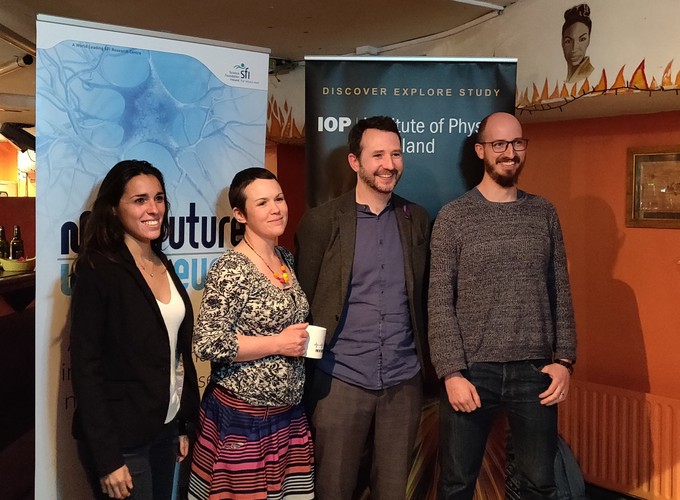The Brain in Motion
 Image credit:
Image credit:
The Brain in Motion
Abstract
Falls are one of the leading causes of reduction in life expectancy. Also, there are many neurological disorders, such as Parkinson’s disease, that affect people’s ability to walk and therefore impacting their quality of life. For a long time, walking was considered an automatic process which did not require much cortical processing resources, but this is not the case. In this talk, I will present a series of studies which investigate the neural processes of walking in healthy young people, older people and people with Parkinson’s disease. To investigate this every day process required the combination of different research fields such as neuroscience, computer science, mathematics, statistics, data analytics, neurology and electrical engineering, to name a few. I will show how these studies have provided highly promising neurophysiological insights into walking in a natural environment.
Had a lovely time last night presenting and discussing brain development, the brain in motion and the myths and reality of cannabis with @anna_truzzi @IMMAlab and @tdm_hill Thanks to the @pintofscienceIE organisers and everyone who came along. https://t.co/rHrddvf7Dt
— John Butler (@jslbutler) May 22, 2019